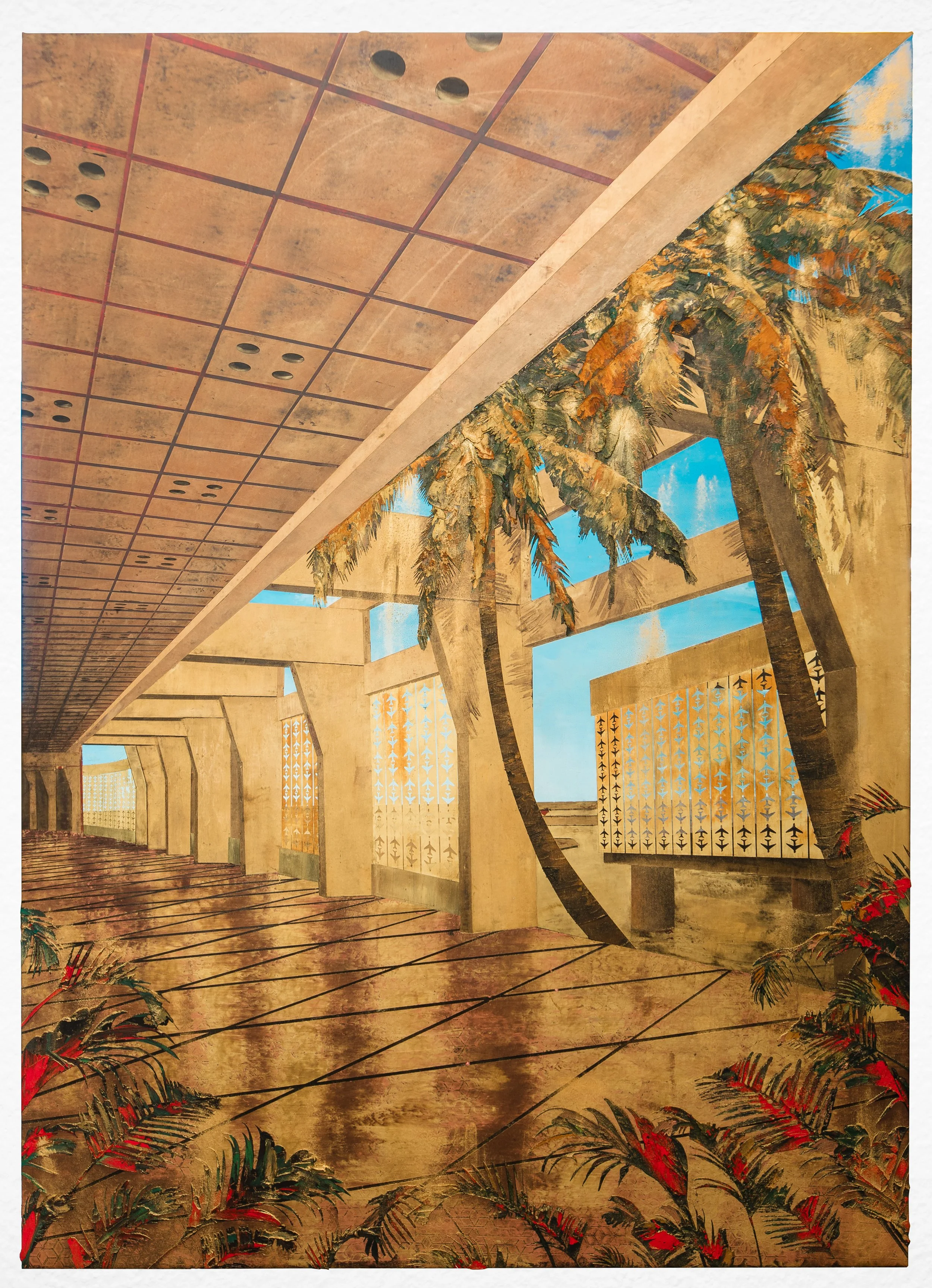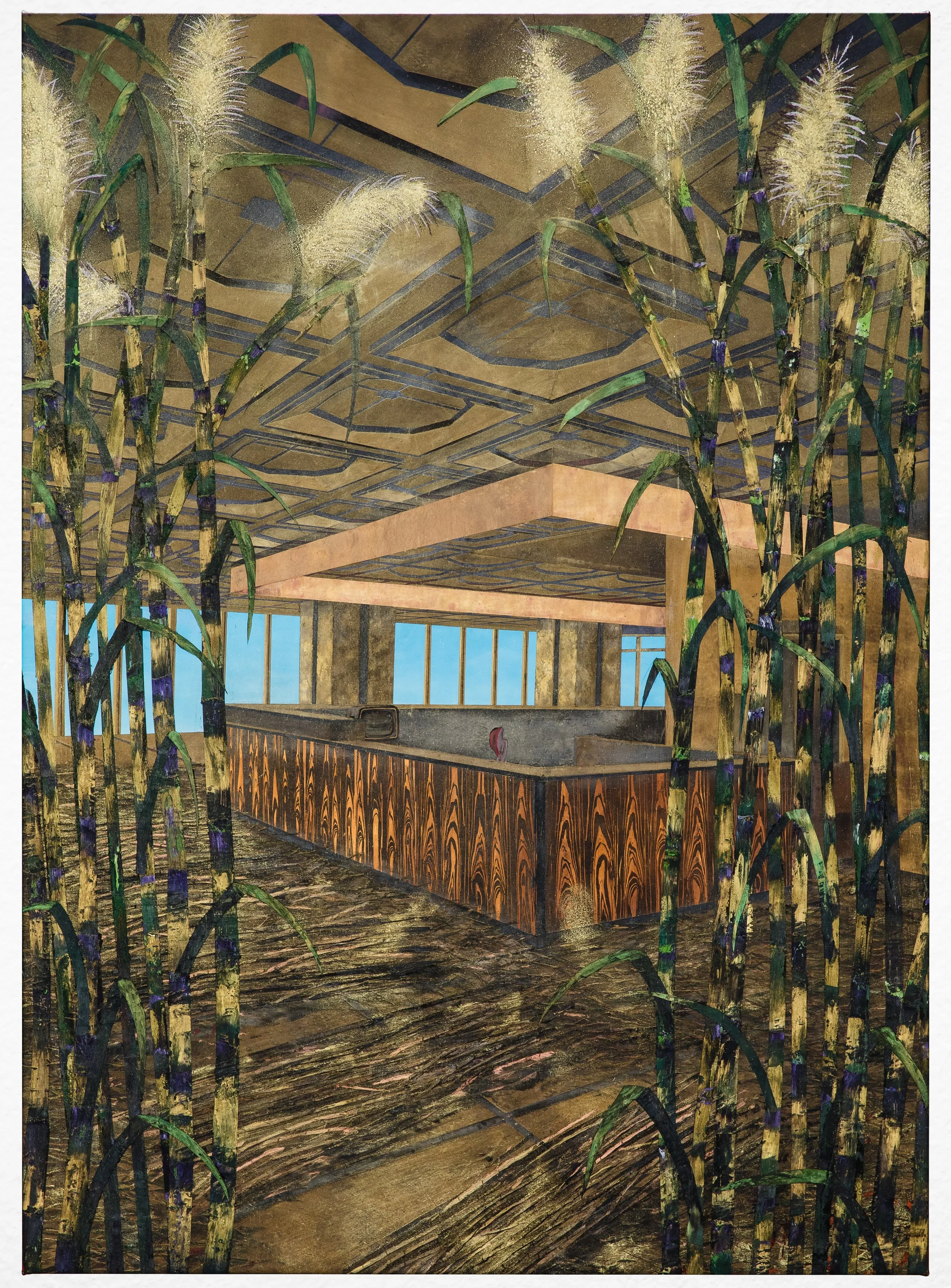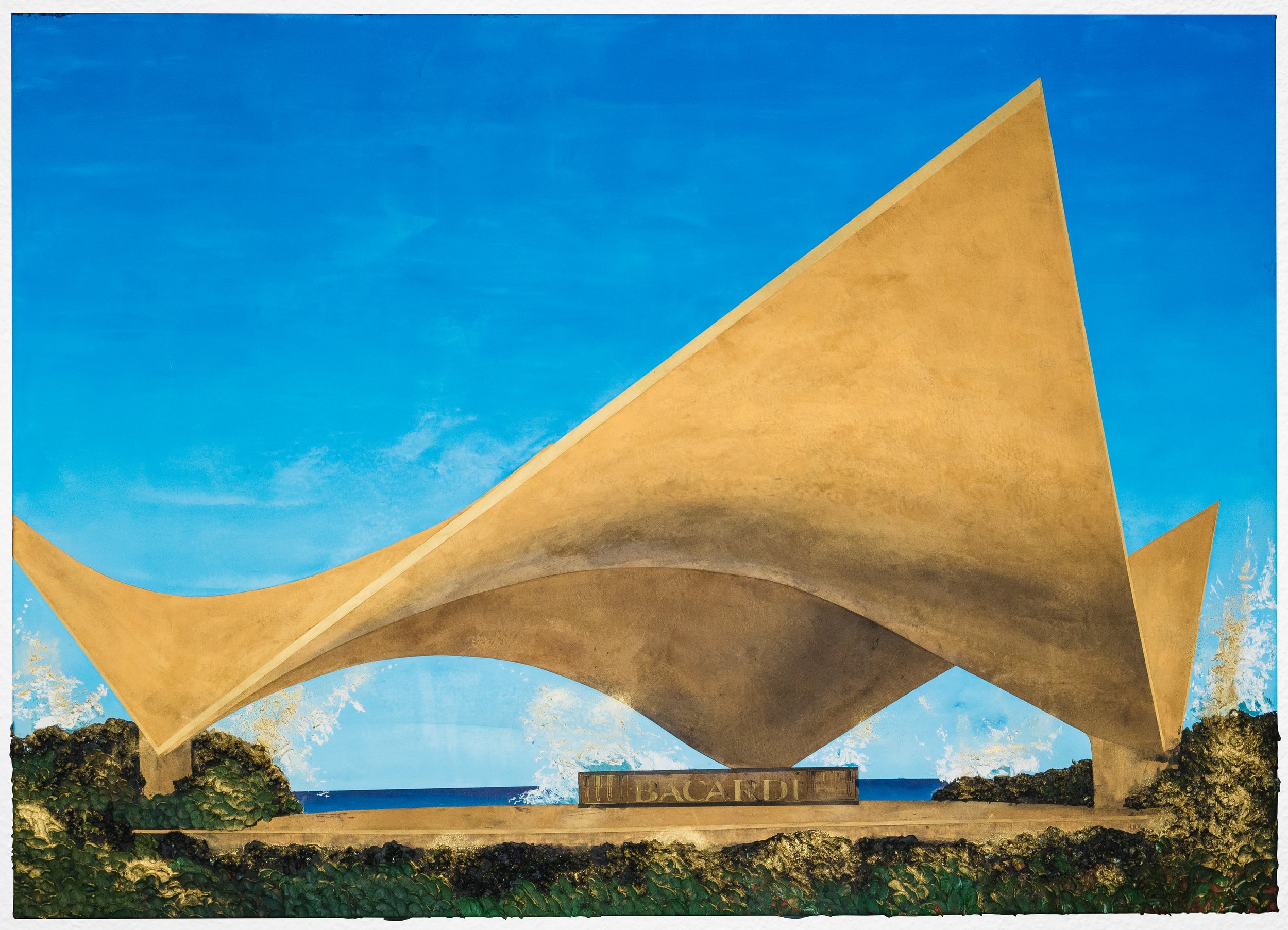Construct of a No-Country
In this series, I delve into the interior spaces of the architecture of modernity in Puerto Rico, which began around the 1950s. I use and highlight in my work the spaces and urban planning projects of the country, such as universities, hospitals, and social housing, which were designed to project a false image of progress and modernization in my country. This takes place in a colonial context that, at the time, had been enduring over half a century of U.S. domination on our island. In a fictional manner, I construct imaginaries using nature as a stigma of the wild, precarious, or over-exoticized. In my intention to exaggerate tropical fiction, I am constantly astonished by the reality that surpasses fiction in my paintings. The unhealthy plan to create a false image of progress in an impoverished island still under colonial relations is my primary source of inspiration/disillusionment to build narratives that converge with the true aspirations of achieving a full country.
In my work, the denunciation of vile colonization is woven together with the possibility of a more solemn humanism, disillusionment and failure, pride and aspirations in a series of images that condense a blend of contradictions confused in beauty, humor, and the uncertain future. More than painted, my work is constructed almost as a worker builds a building. I avoid brushes and the act of mimicking. I craft my oil paintings and use waxes and resins in a way that resembles a mortar similar to concrete or plaster used to erect walls. I almost renounced everything learned in academia. I rely on the knowledge I’ve acquired from trades learned to survive, such as cabinetry, masonry, and building construction, which have helped me reinvent the way I place my own painting on the canvas. In my works, I also use knowledge acquired from traditional graphic design and screen printing to create images. I mainly make use of all the stenciling and masking processes, and complex procedures that are done before applying the paint.
My approach and development of the work also somewhat emulate the way of building a model or creating a study in architecture. All of this allows me to create a diversity of marks not commonly recognized within the usual visual arts.
Concrete Museum, from the series Construct of a No-Country, 2024, oil, beeswax and gold pigment of canvas, 60" x 84". Photo by Fernando Ortiz.
Installation view, Lehmann Maupin gallery, London. Photo by Lucy Dawkins.
Tobacco Lounge, 2024, oil, beeswax and gold pigment on canvas, 72" x 52". Photo by Lucy Dawkins.
Tobacco Lounge [Detail]. Photo by Lucy Dawkins.
Hotel Tropical, 2024, oil, beeswax and gold pigment on canvas, 72" x 51". Photo by Lucy Dawkins.
Hotel Tropical [Detail]. Photo by Lucy Dawkins.
Ysla, 2024, oil, beeswax and gold pigment on canvas, 72" x 51". Photo by Lucy Dawkins.
Ysla [Detail]. Photo by Lucy Dawkins.
The Beach House, 2024, oil, beeswax and gold pigment on canvas, 48" x 72". Photo by Lucy Dawkins.
The Beach House [Detail]. Photo by Lucy Dawkins.
Midnight Watch, 2024, oil, beeswax and gold pigment on canvas, 84" x 66 1/2". Photo by Lucy Dawkins.
Midnight Watch [Detail]. Photo by Lucy Dawkins.
General's Coffee, 2024, oil, beeswax and gold pigment on canvas, 84" x 65". Photo by Lucy Dawkins.
General's Coffee [Detail]. Photo by Lucy Dawkins.
Resort University, 2024, oil, beeswax and gold pigment on canvas, 48" x 71 3/4". Photo by Lucy Dawkins.
Resort University [Detail]. Photo by Lucy Dawkins.
The Supreme Theatre of Puerto Rico, from the series Construct of a No-Country, 2024, oil, beeswax and gold pigment of canvas, 214 x 305. Photo by Fernando Ortiz.
Waiting Center, 2024, oil, beeswax and gold pigment on canvas, 48" x 71 3/4". Photo by Lucy Dawkins.
Waiting Center [Detail]. Photo by Lucy Dawkins.
Waterfront Arena, 2024, oil, beeswax and gold pigment on canvas, 48" x 72". Photo by Lucy Dawkins.
Waterfront Arena [Detail]. Photo by Lucy Dawkins.
The Country Club, 2024, oil, beeswax and gold pigment on canvas, 60" x 84". Photo by Lucy Dawkins.
The Country Club [Detail]. Photo by Lucy Dawkins.
Pacific Destination, from the series Construct of a No-Country, 2024, oil, beeswax nad gold pigment of canvas, 72" x 52". Photo by Fernando Ortiz.
Sugar Bank, from the series Construct of a No-Country, 2024, oil, beeswax nad gold pigment of canvas, 72" x 52". Photo by Fernando Ortiz.
Tropical Illusion, from the series Construct of a No-Country, 2024, oil, beeswax nad gold pigment of canvas, 60" x 84". Photo by Fernando Ortiz.
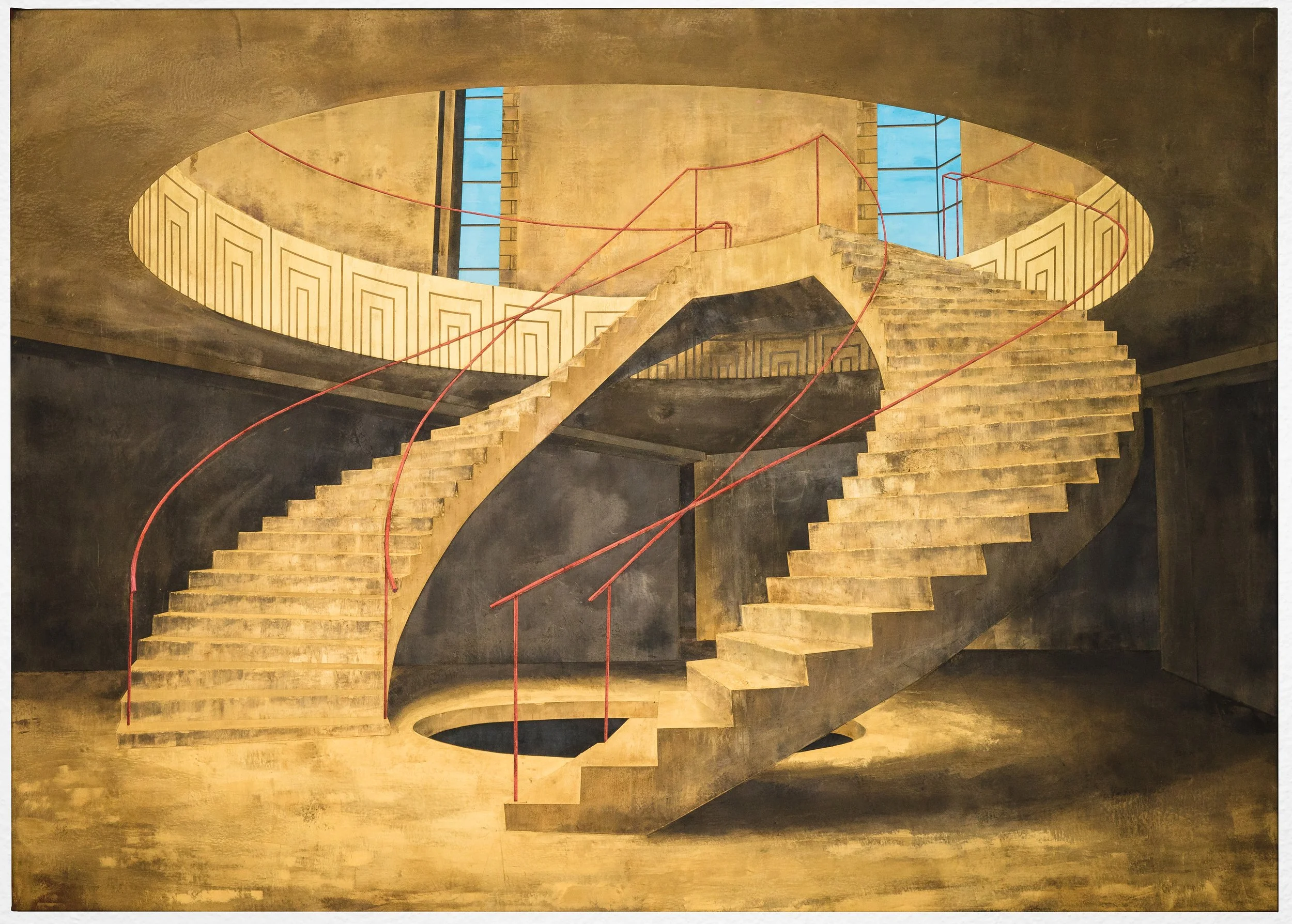
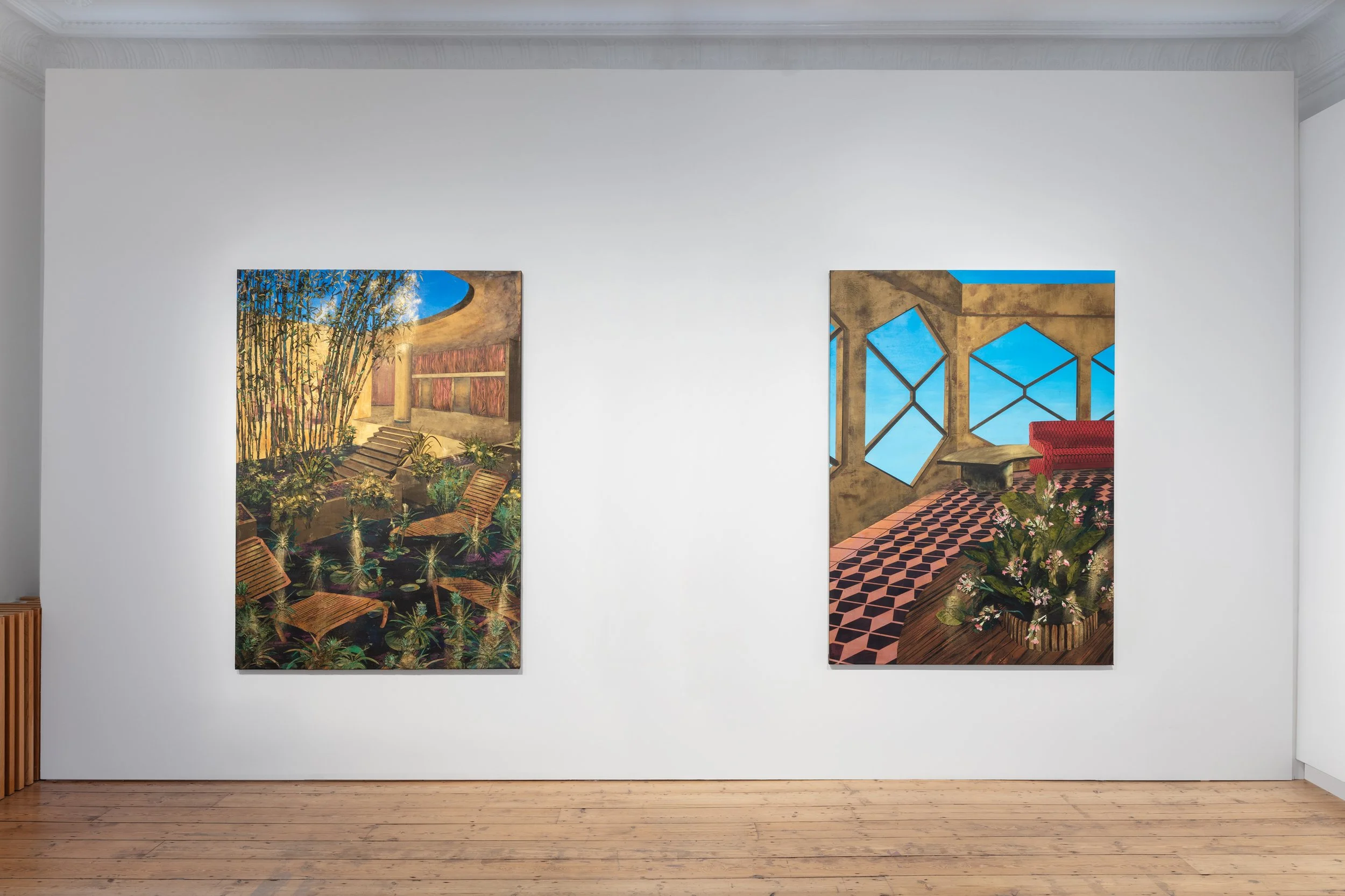
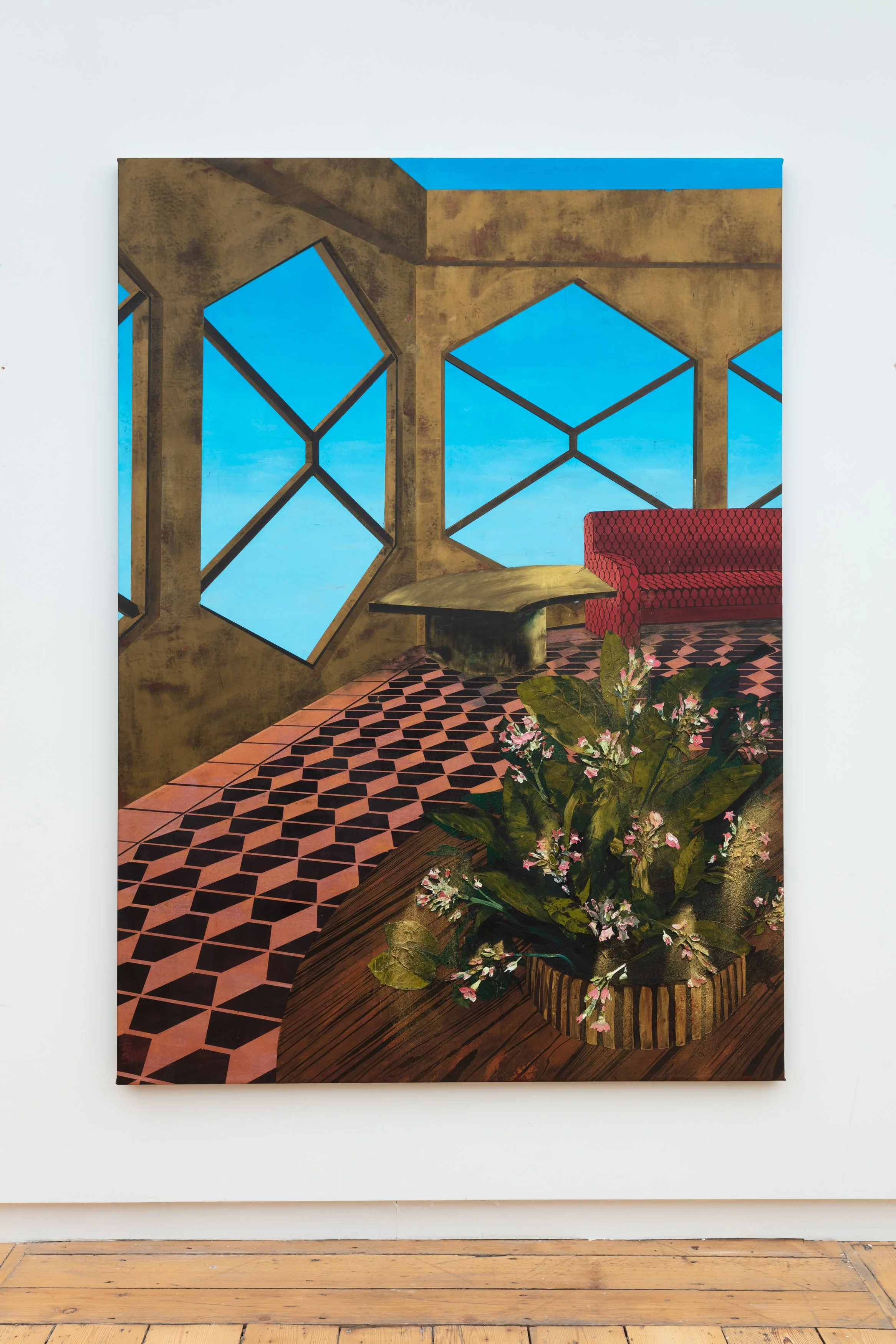
![Tobacco Lounge [Detail]. Photo by Lucy Dawkins.](https://images.squarespace-cdn.com/content/v1/676ee9e8b889fe581758c4a4/69a1fd5c-7f11-422b-8727-314c453761a3/RBV-LM37761+Tobacco+Lounge+det01+hr.jpeg)
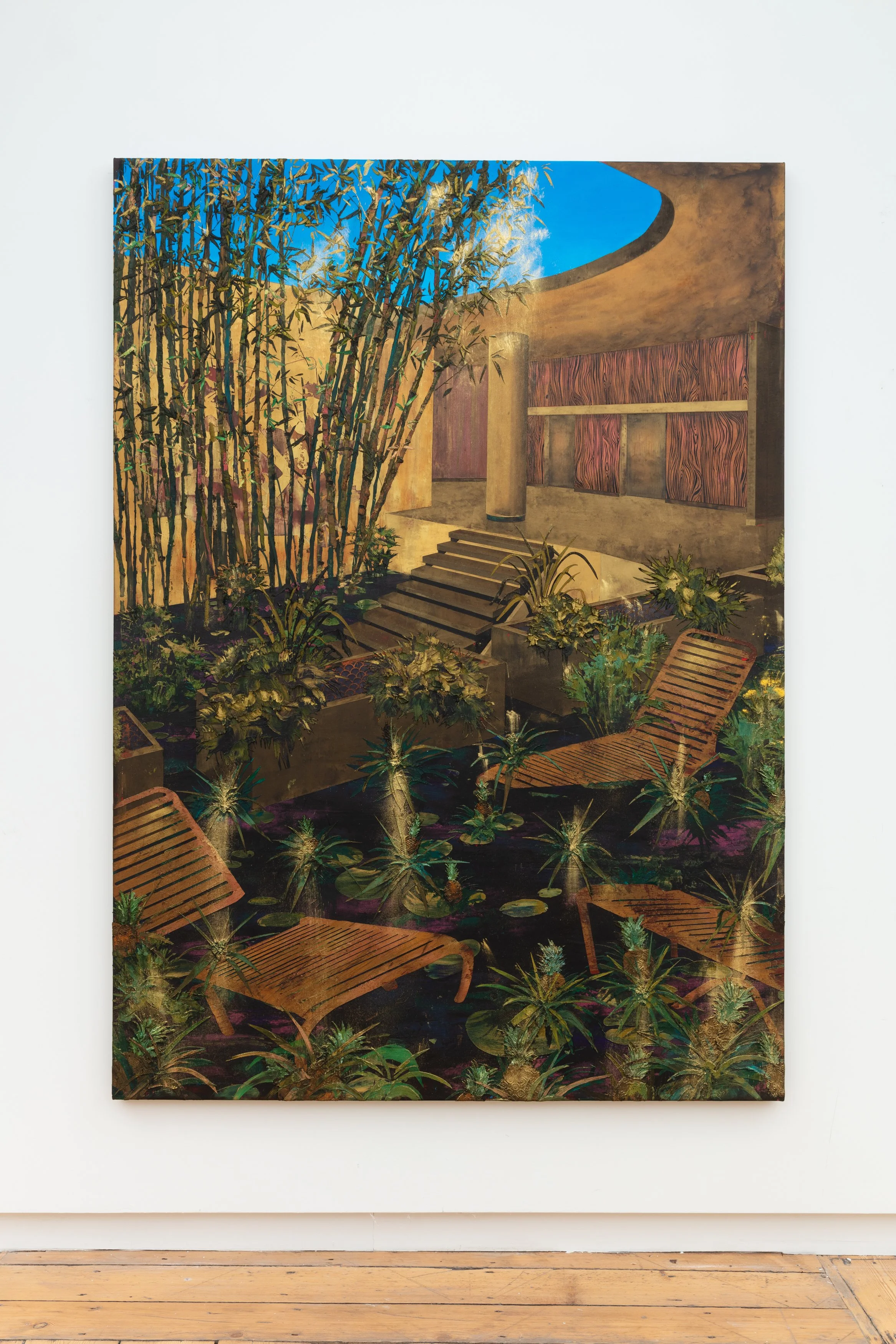
![Hotel Tropical [Detail]. Photo by Lucy Dawkins.](https://images.squarespace-cdn.com/content/v1/676ee9e8b889fe581758c4a4/722a86a6-942a-410a-8844-1e780250133c/RBV-LM37743+Hotel+Tropical+det01+hr.jpeg)
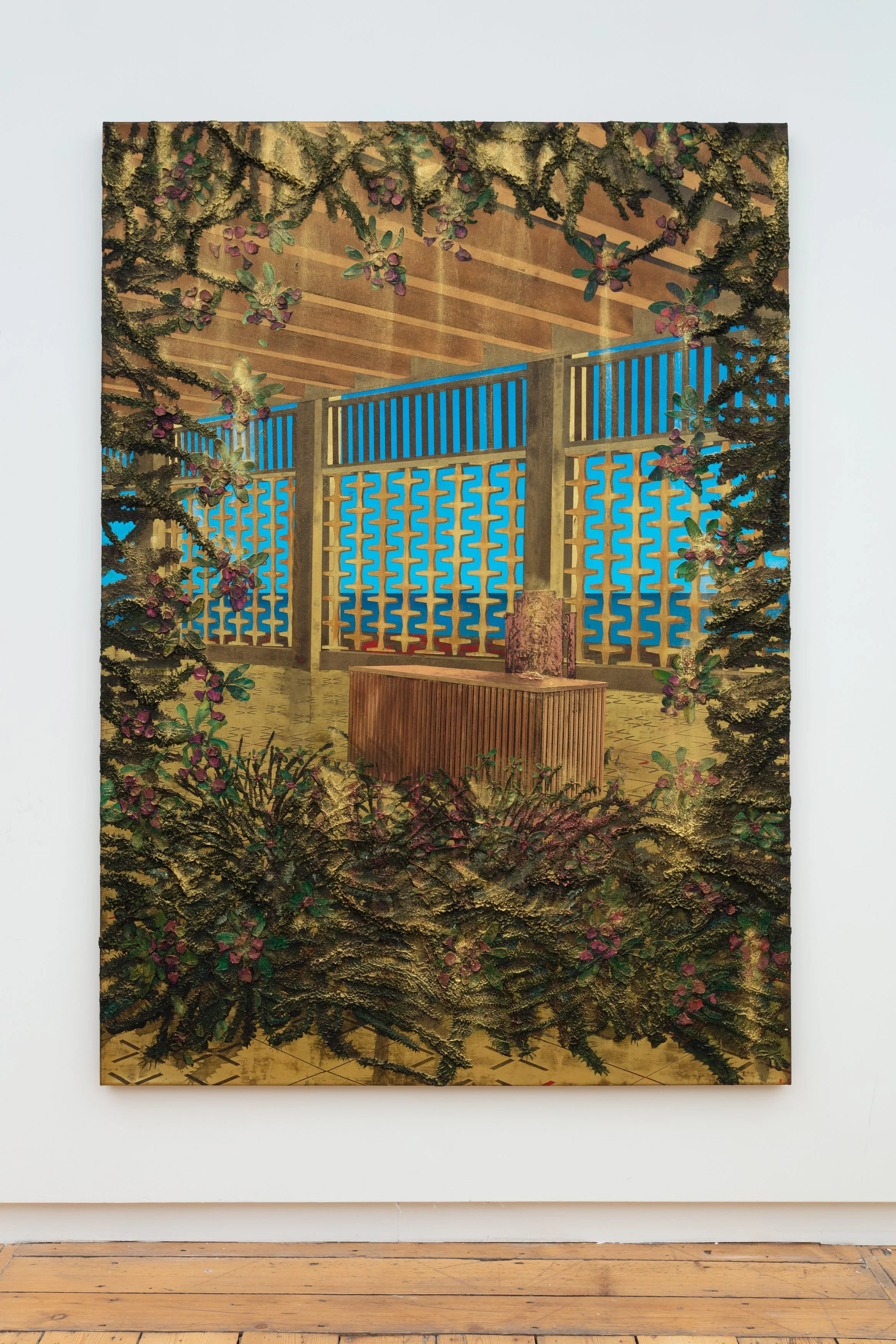
![Ysla [Detail]. Photo by Lucy Dawkins.](https://images.squarespace-cdn.com/content/v1/676ee9e8b889fe581758c4a4/80f90b38-4697-4511-a58f-fde46ef1e5c4/RBV-LM37744+YSLA+det01+hr.jpeg)
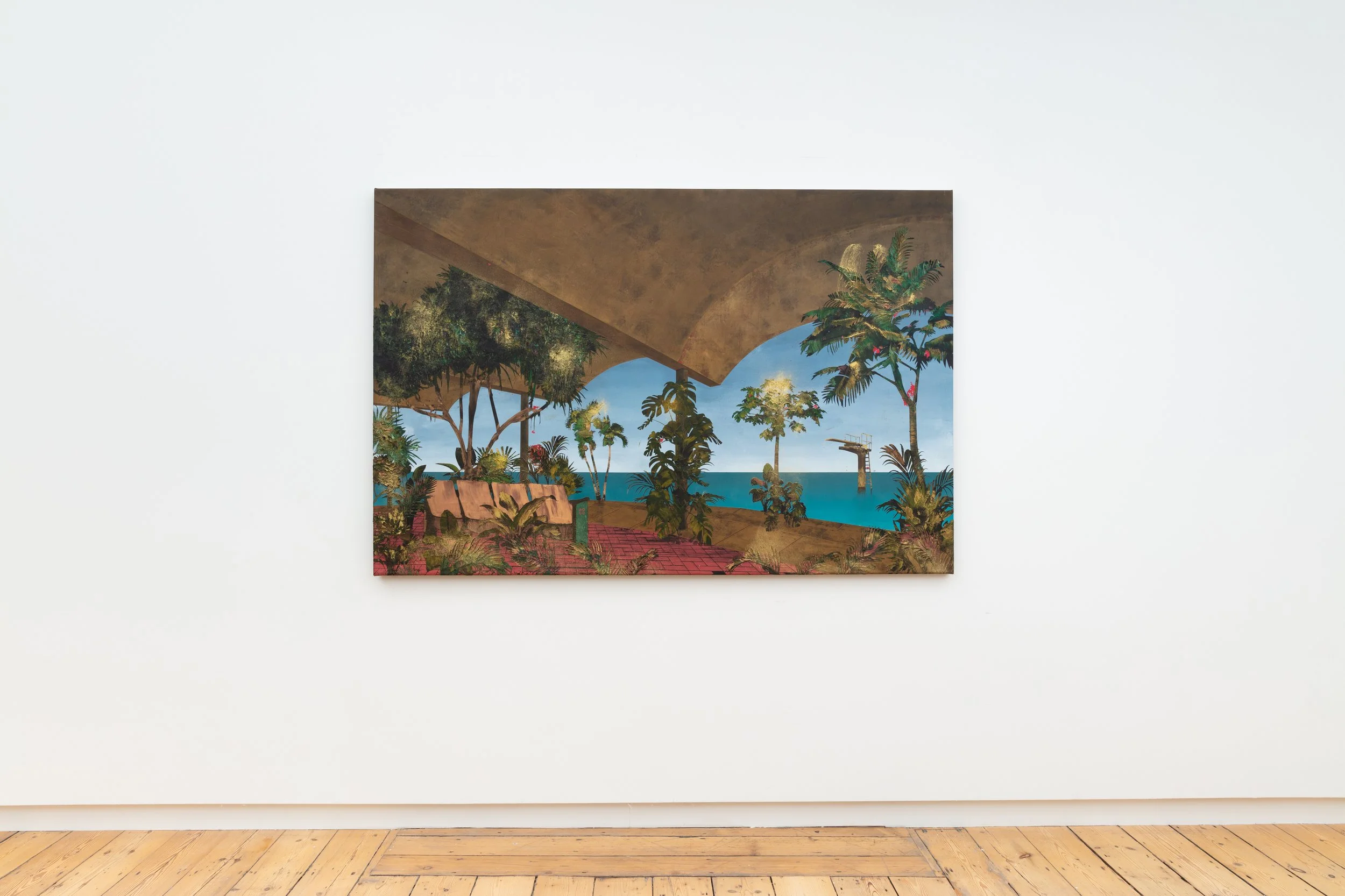
![The Beach House [Detail]. Photo by Lucy Dawkins.](https://images.squarespace-cdn.com/content/v1/676ee9e8b889fe581758c4a4/c6cb4307-91da-421e-b582-ac06a8d061a5/RBV-LM37745+The+Beach+House+det01+hr.jpeg)
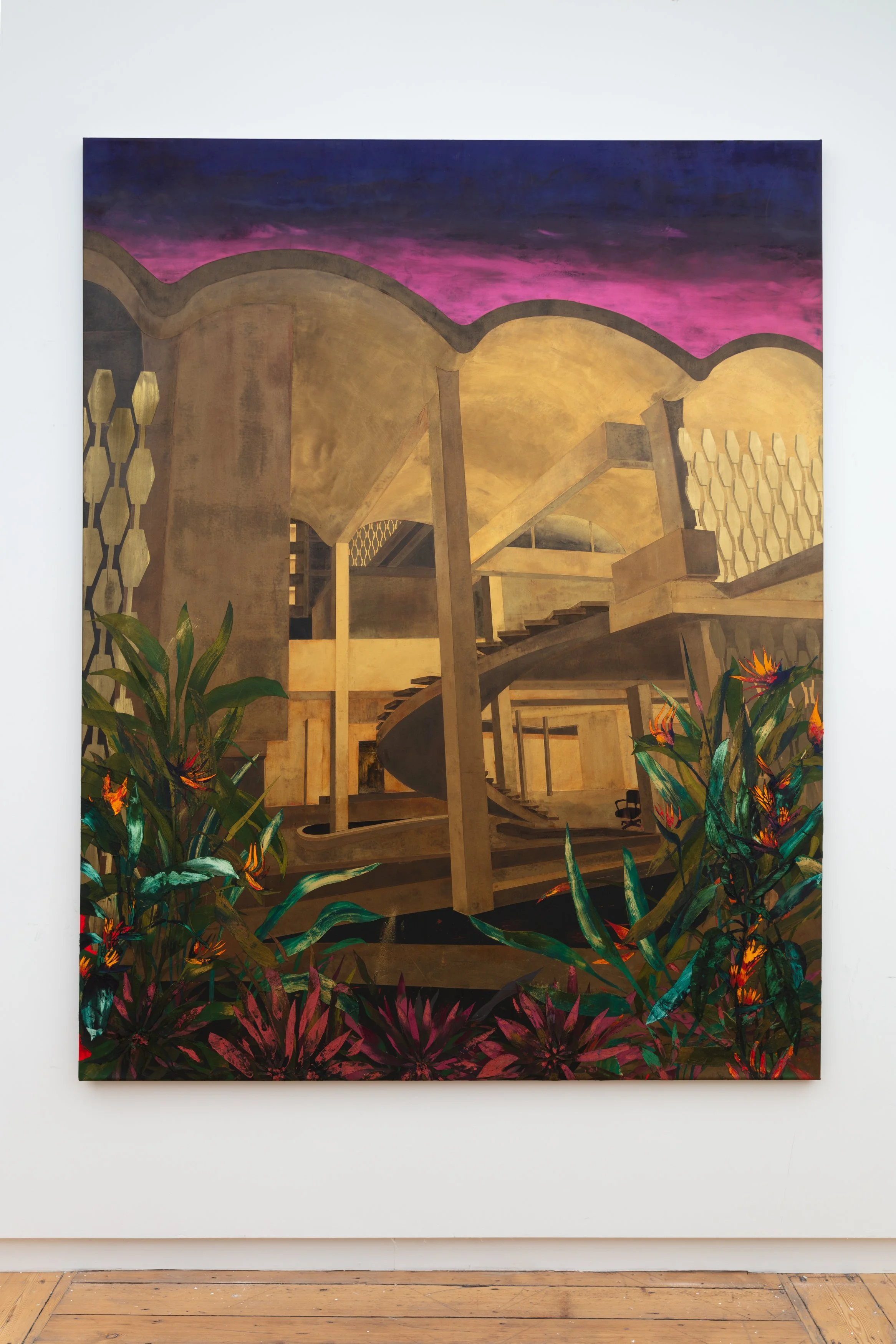
![Midnight Watch [Detail]. Photo by Lucy Dawkins.](https://images.squarespace-cdn.com/content/v1/676ee9e8b889fe581758c4a4/c5ed0b0f-3146-40bf-85b6-c98697b46c14/RBV-LM37746+Midnight+Watch+det01+hr.jpeg)
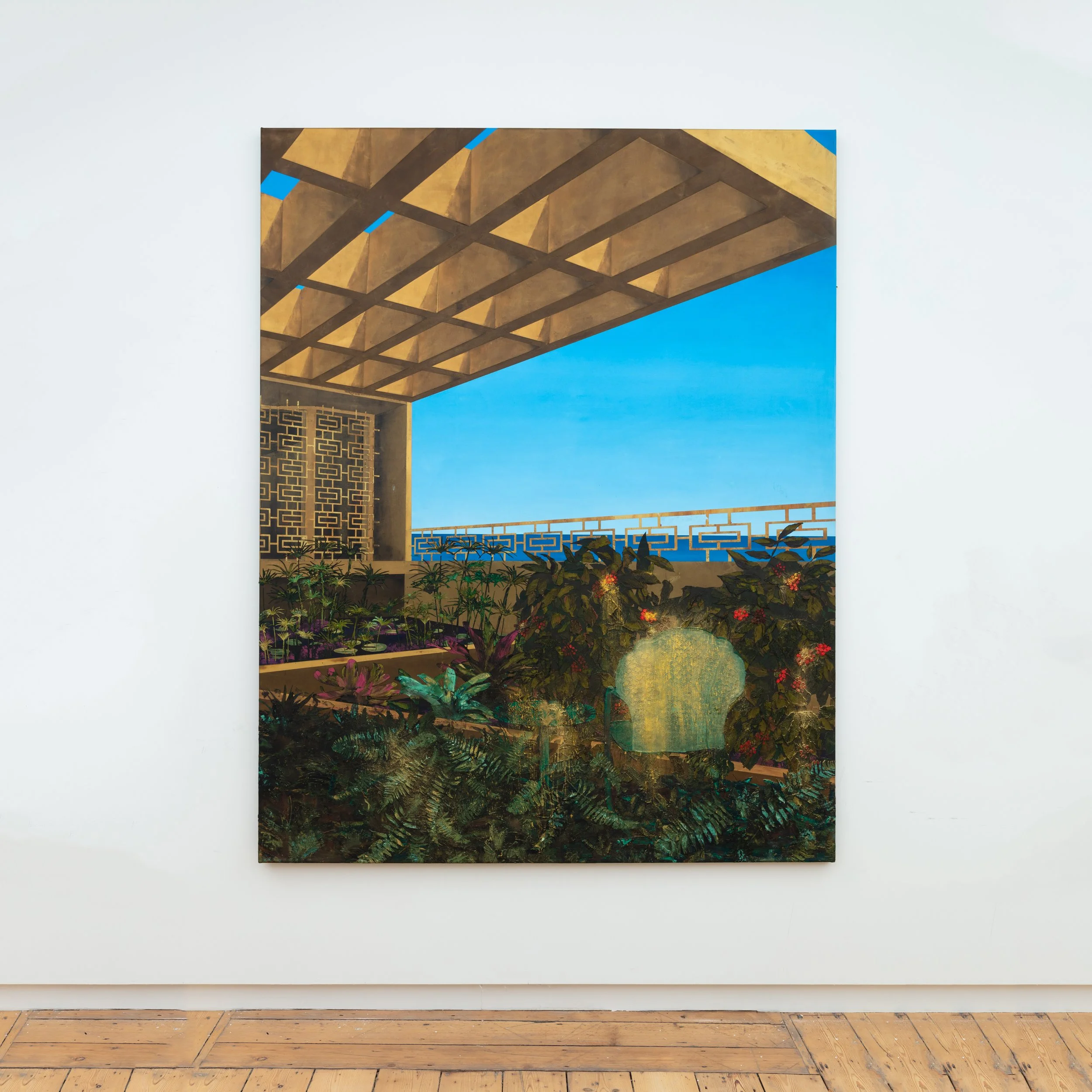
![General's Coffee [Detail]. Photo by Lucy Dawkins.](https://images.squarespace-cdn.com/content/v1/676ee9e8b889fe581758c4a4/8438e71e-bff2-4460-aad9-034bd443976e/RBV-LM37747+General%27s+Coffee+det01+hr.jpeg)
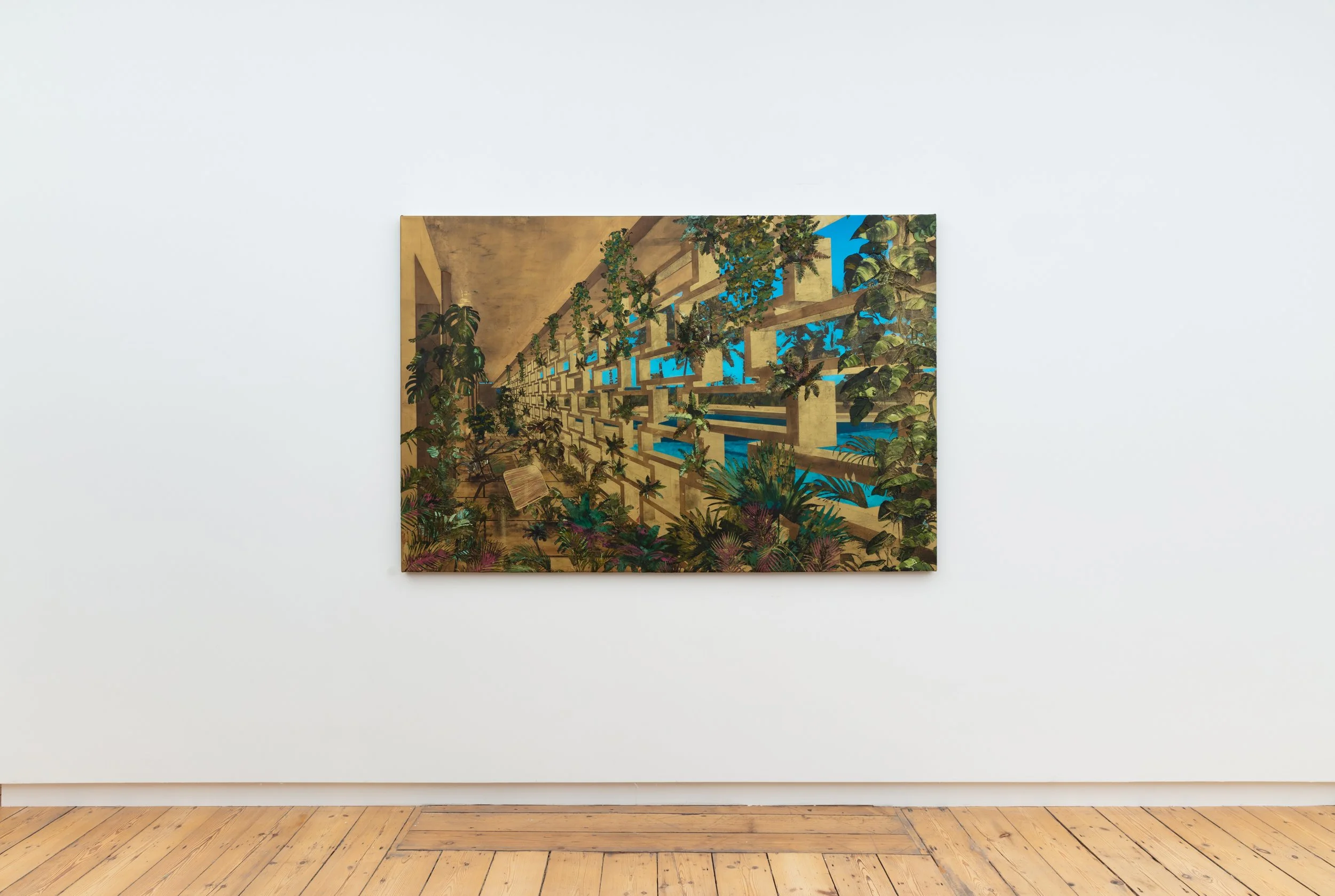
![Resort University [Detail]. Photo by Lucy Dawkins.](https://images.squarespace-cdn.com/content/v1/676ee9e8b889fe581758c4a4/56005884-413f-41f7-aebe-491d92a4995a/RBV-LM37748+Resort+University+det01+hr.jpeg)
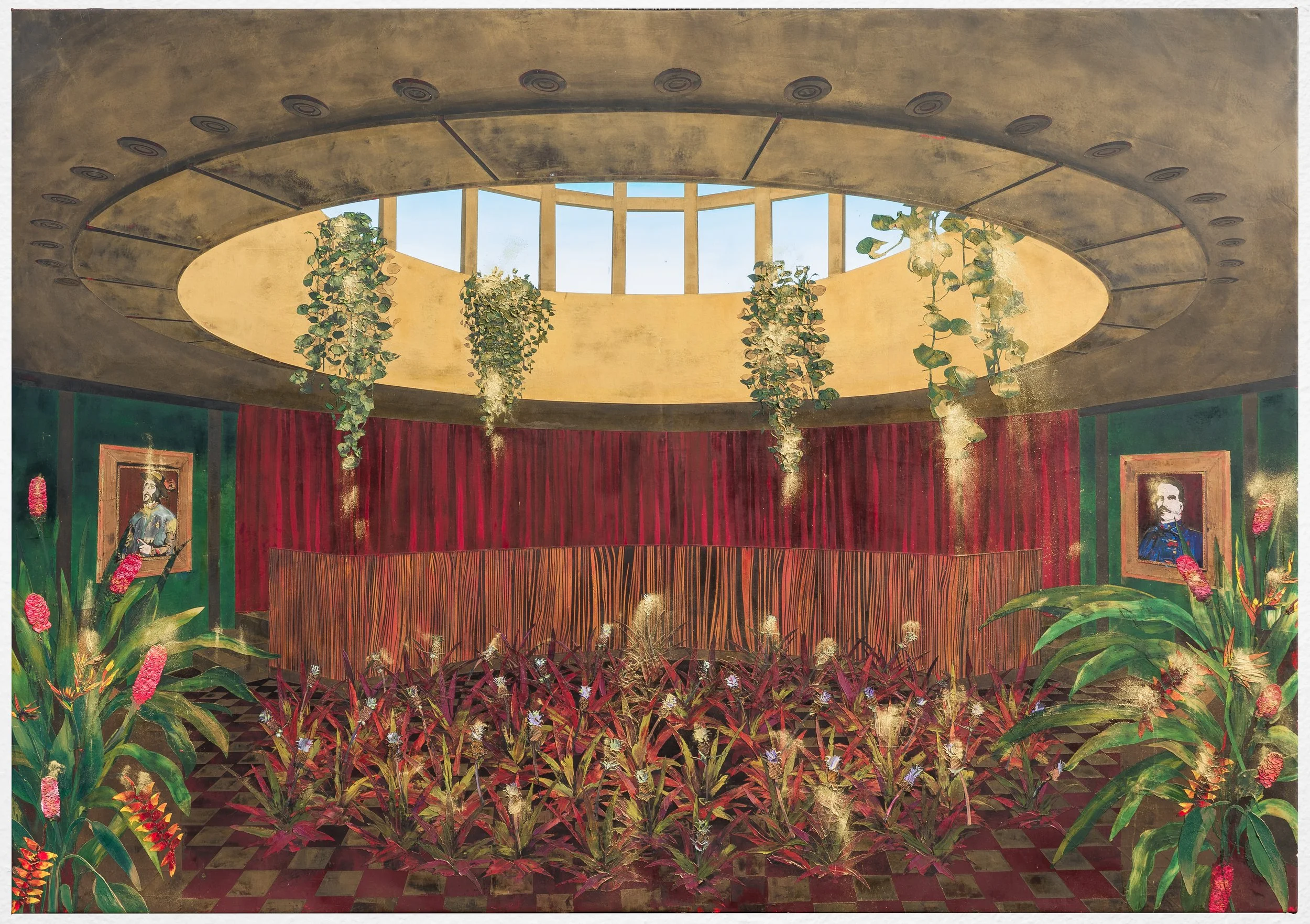
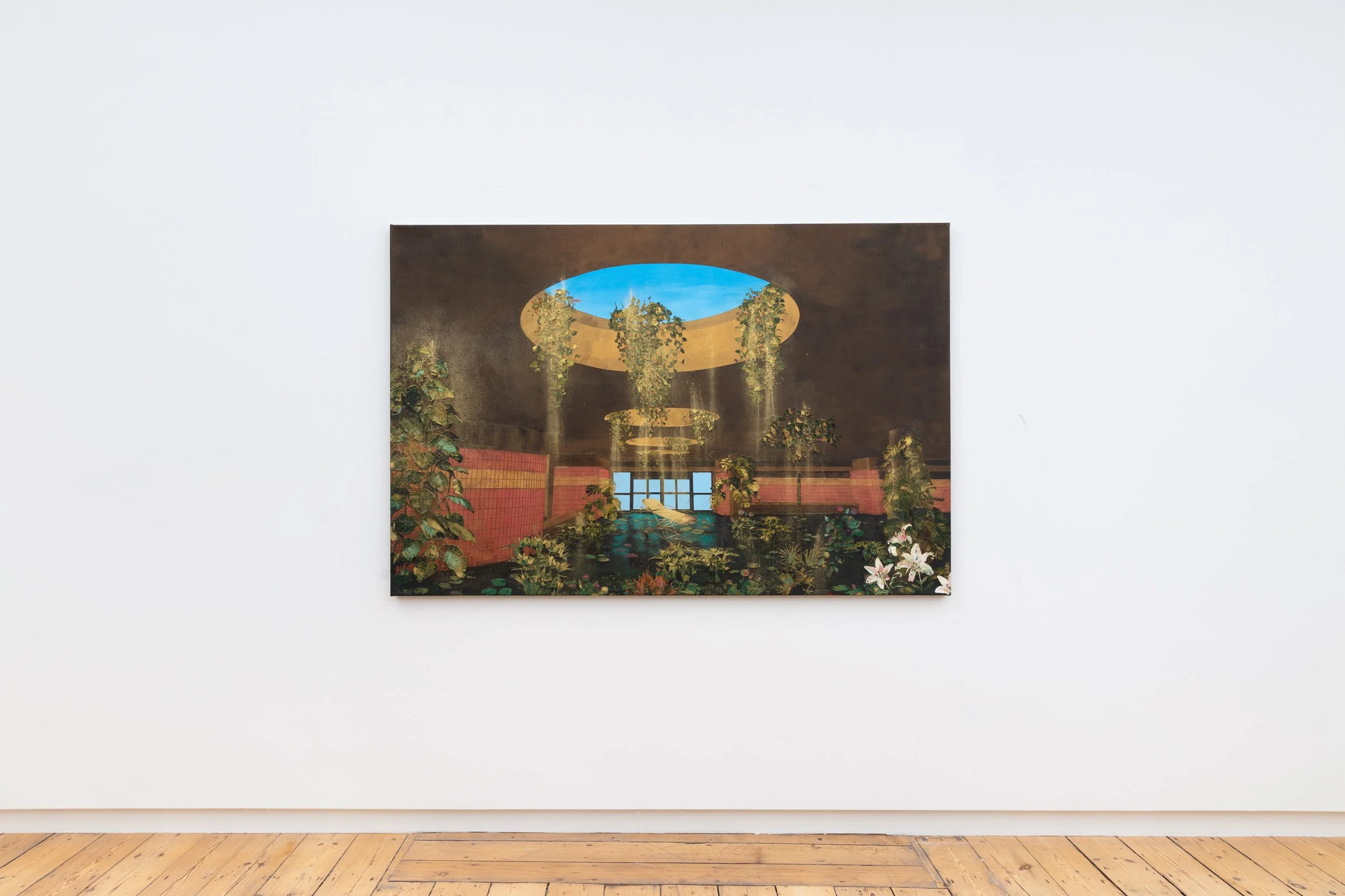
![Waiting Center [Detail]. Photo by Lucy Dawkins.](https://images.squarespace-cdn.com/content/v1/676ee9e8b889fe581758c4a4/c2c8bd81-f877-494a-a139-7559cebb132e/RBV-LM37749+Waiting+Center+det01+hr.jpeg)
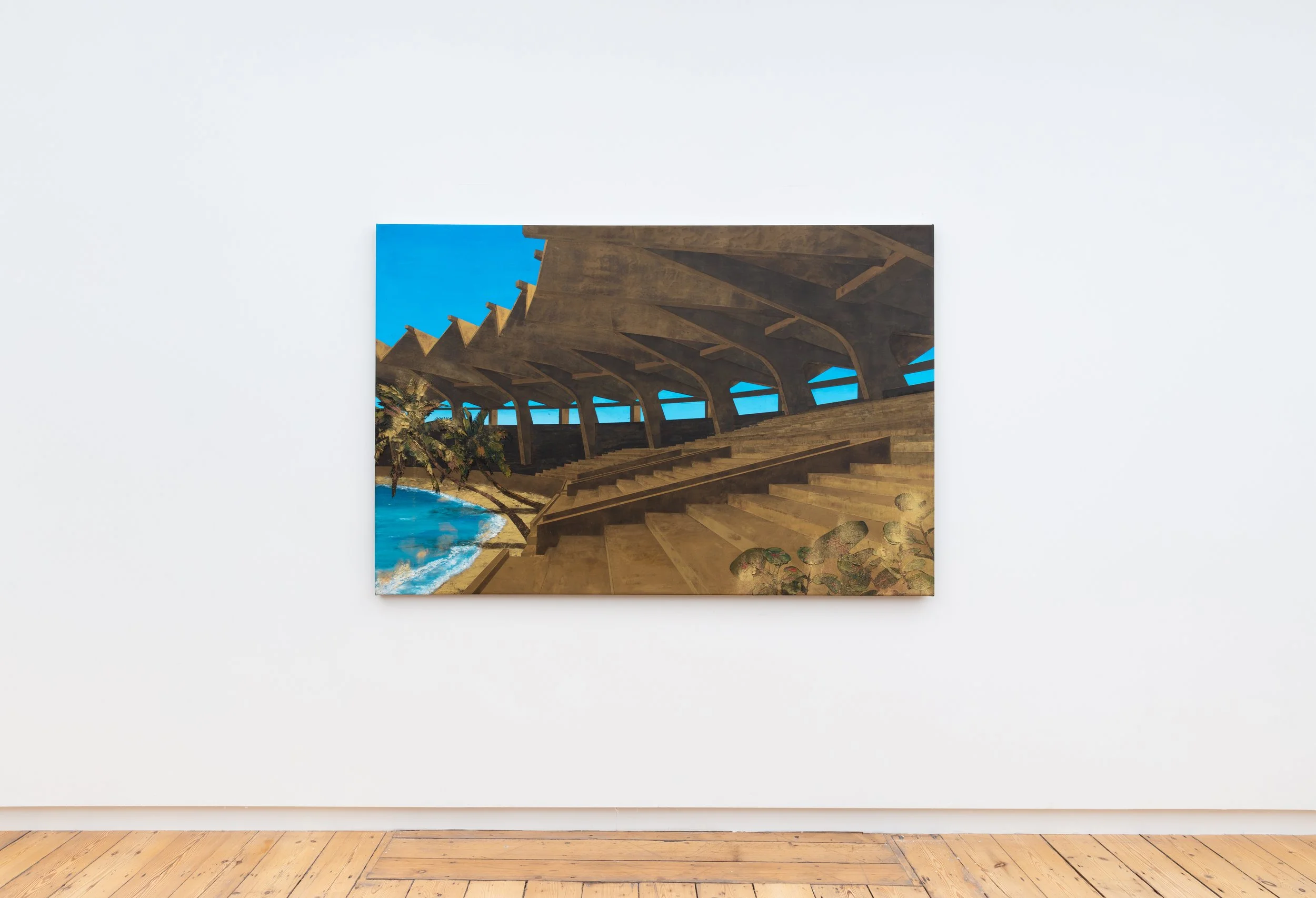
![Waterfront Arena [Detail]. Photo by Lucy Dawkins.](https://images.squarespace-cdn.com/content/v1/676ee9e8b889fe581758c4a4/f22dce02-69fd-4db1-a697-620fa04e4b6c/RBV-LM37762+Waterfront+Arena+det01+hr.jpeg)
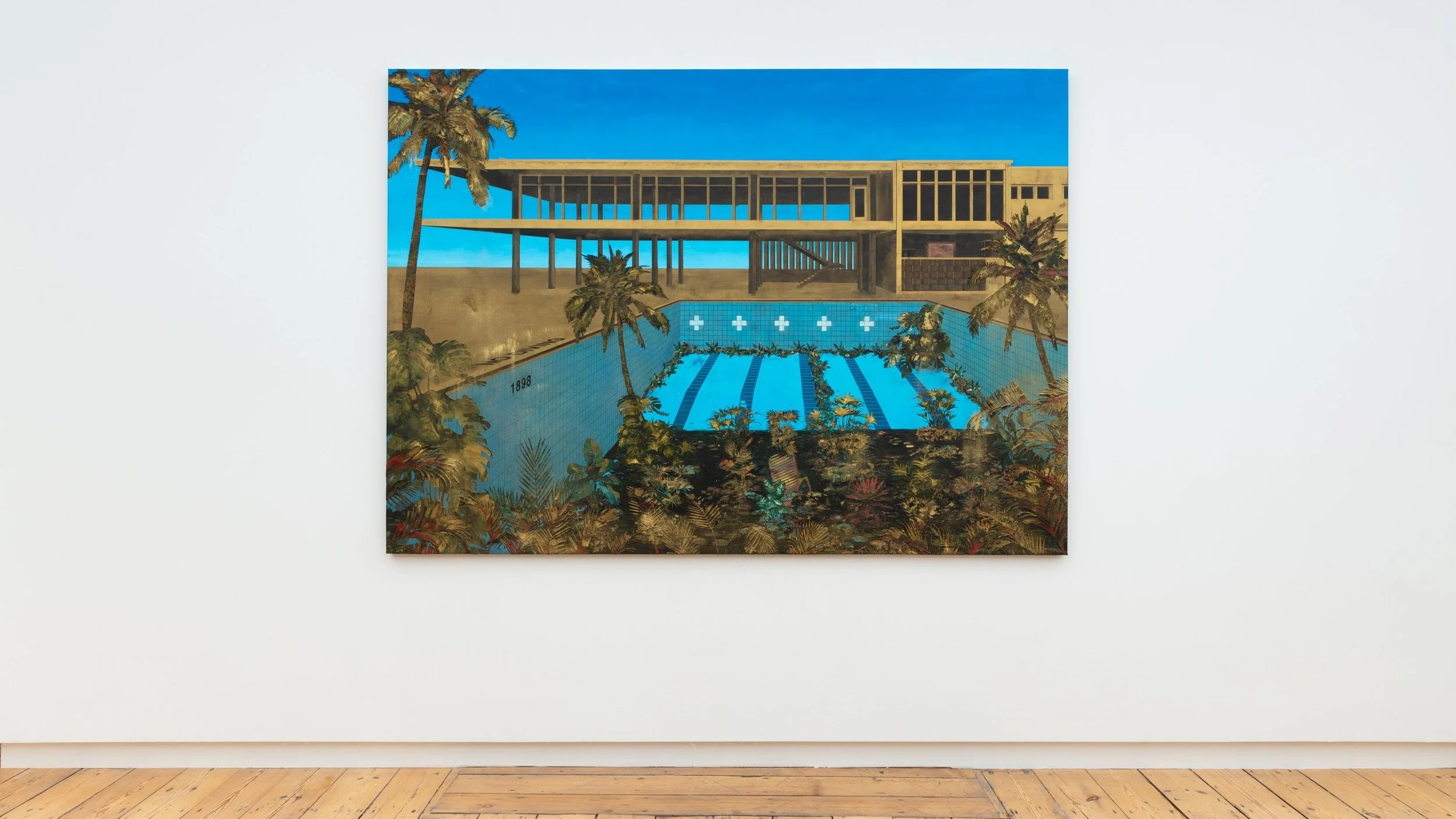
![The Country Club [Detail]. Photo by Lucy Dawkins.](https://images.squarespace-cdn.com/content/v1/676ee9e8b889fe581758c4a4/c36acfe5-eadc-47ed-9e72-9f590a6d18c9/RBV-LM37765+The+Country+Club+det01+hr.jpeg)
